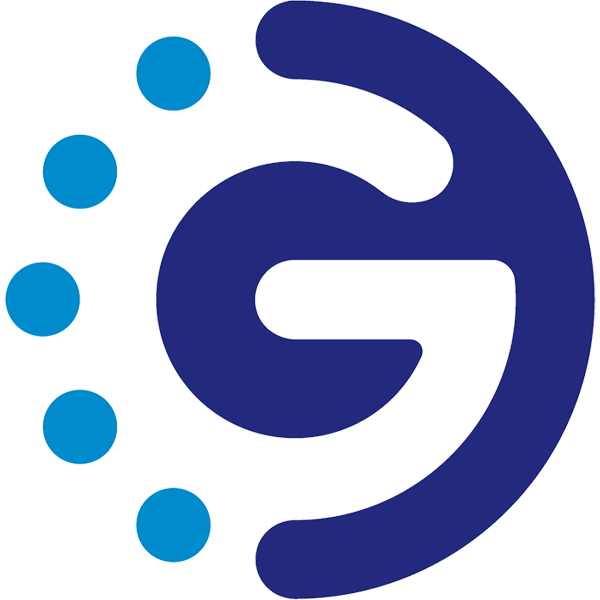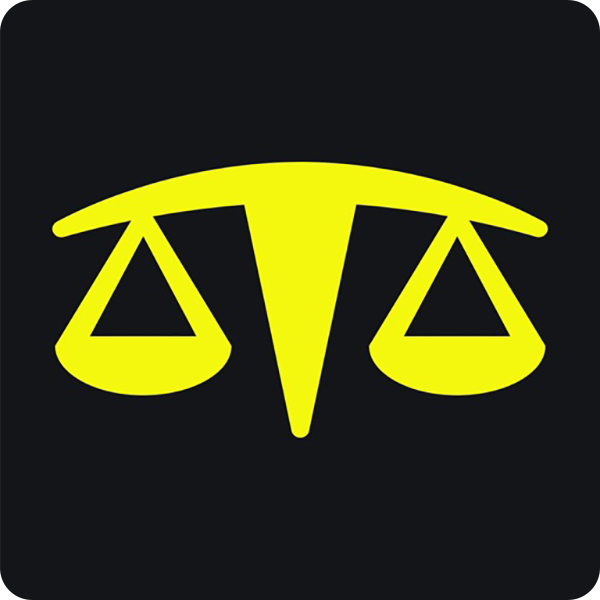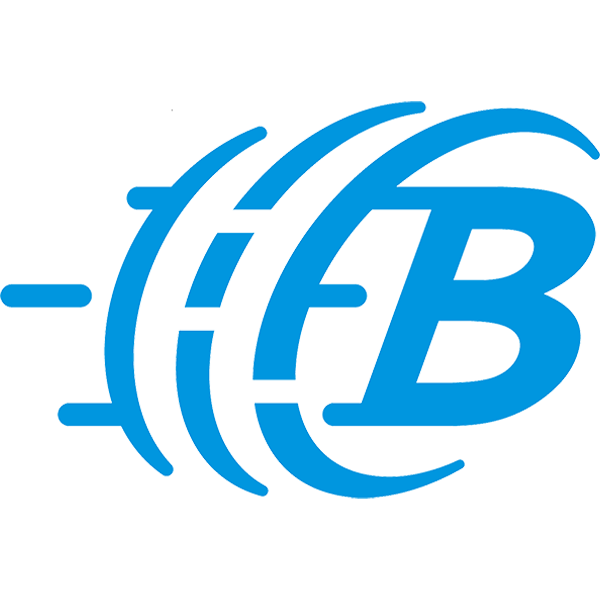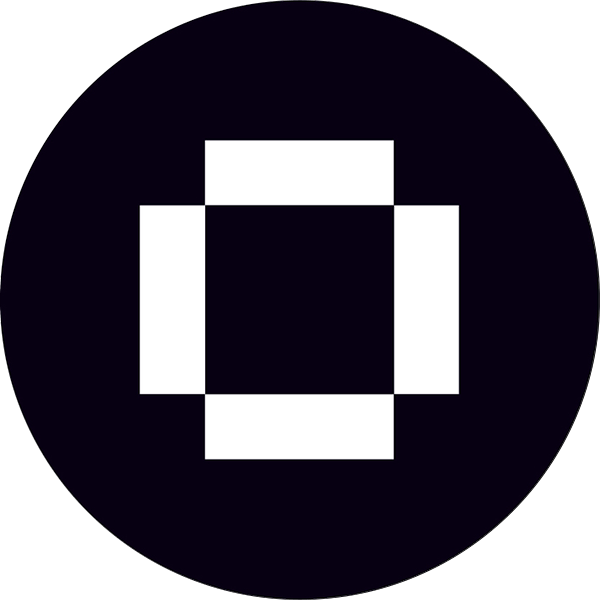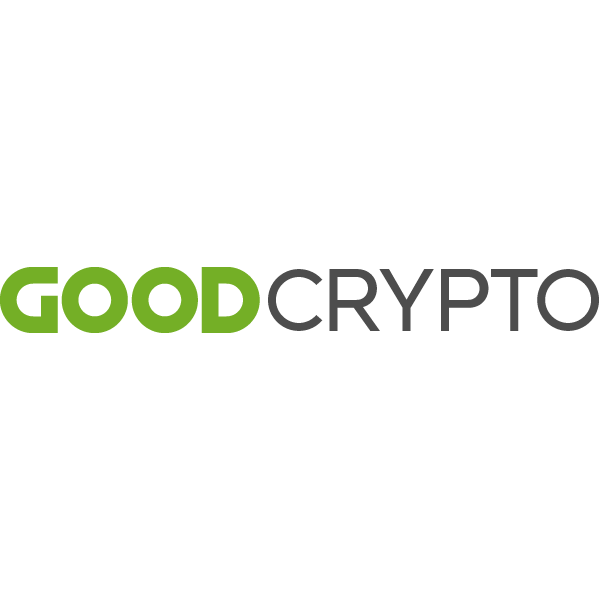GoChain company entry
company profile
GoChain is an American blockchain technology company founded in December 2017 and headquartered in Reno, Nevada (exact address is not disclosed). The company is led by founder Travis Reeder, and the core team includes Henry Ines (CEO of Chainparency Inc.), Jai Verma (Chairman of Protecti and former CEO of Cigna Government Solutions), Eric Fegraus (Senior Technical Product Manager, Amazon), Cassandra Ferrara (VP of Developer Relations at Observable), Chris Berg (Co-Director, Blockchain Innovation Center, RMIT), Mark Arruda (General Manager, Athena Cloud), and Craig Macy (Director, Steam Law). GoChain is committed to building a scalable, decentralized, and low-power blockchain network that supports decentralized applications (dApps) and smart contracts, uses the innovative Proof of Reputation consensus algorithm, provides a 100% Ethereum-compatible platform, and supports existing tools such as Truffle, OpenZeppelin, and MyEtherWallet. As of June 2025, GoChain has established partnerships with DISH Network, Microsoft, Chainlink, Pukkamex, LINKCHAIN, and Penn State Smeal College of Business, among others, and is active in the global blockchain community, through LinkedIn (about 1,331 followers), X (@go_chain) and Facebook (@gochaingo) to interact with users. The company is a member of the Japan Blockchain Association (JBA) and participates in Web3 activities, but does not publicly disclose the registered capital, shareholding structure, or advisory team information.
regulatory information
As a decentralized blockchain network, GoChain's regulatory status may differ from that of traditional financial institutions. The public information does not disclose the specific regulatory number or official filing information, and the compliance transparency is limited. GoChain may be subject to international regulations related to cryptoassets, such as the European Union's Markets in Cryptoassets Regulation (MiCA) or Japan's Payment Services Law, but the details are not clear. Its non-custodial model (where users manage assets through a blockchain wallet) reduces the platform's direct risk. GoChain ensures network transparency and security through the Proof of Reputation consensus algorithm and community governance mechanism, and may verify the security of smart contracts through third-party audits (such as CertiK) in 2024. Public information on specific Know Your Customer (KYC) or Anti-Money Laundering (AML) processes is not disclosed. In 2024, GoChain did not explicitly respond to the review of unregistered blockchain platforms by the Financial Crimes Enforcement Network (FinCEN) or MiCA in the European Union, which may pose a compliance risk.
trading products
GoChain does not directly provide traditional financial trading products (such as forex, stocks, or CFDs), but supports the development and deployment of dApps and smart contracts through its blockchain platform. The core trading categories include:
GO tokens: GoChain's native token (ERC-20 standard, address not disclosed), used for network governance, gas payment and incentives, issued in May 2018, the current price is about $0.001933 (May 6, 2025), the circulating supply is about 1,310,463,895 GO, the total market capitalization is about $2.53 million, and the 24-hour trading volume is $79,758.40.
dApp Transactions: Supports decentralized application transactions based on the GoChain network, such as supply chain tracking and data management, launched in 2018.
GoTrace Asset Tracking: Records supply chain data through blockchain to support transparent transactions, launched in 2019 for fishing and agriculture.
As of December 25, 2024, GoChain ranked 1,642nd in terms of trading volume, indicating low market activity.
trading software
GoChain provides a series of developer tools and platforms, and its core functions include:
GoChain SDK: A software development kit that supports smart contract development and dApp deployment, launched in 2018, and is compatible with Ethereum tools such as Truffle and OpenZeppelin.
GoTrace: A blockchain-based supply chain tracking SaaS platform that enables enterprise users to manage transparent data, launched in 2019.
Web3 CLI: A Command-Line Tool to Simplify Blockchain Interactions, Released in 2020 (GitHub).
API interface: Connect blockchain network and market data through REST API and Web3.js to support automated transactions and data queries, implemented in 2018.
GoChain Explorer: An open-source blockchain explorer based on JavaScript for viewing transactions, smart contracts, and network data, launched in 2018 (GoChain Explorer).
The platform uses Solidity smart contracts, supports low-latency transactions, and the user interface supports English, focusing on novice and developer friendliness. In 2024, GoChain will optimize the Explorer function and add transaction filtering and data export, but the specific API documentation has not been publicly disclosed.
deposit and withdrawal methods
GoChain adopts a non-custodial model, where users manage GO tokens and other crypto assets through blockchain wallets (such as MetaMask, MyEtherWallet). The deposit and withdrawal process includes:
deposit: Users purchase GO tokens or other compatible assets through cryptocurrency exchanges (e.g., Binance, KuCoin) and transfer them to the GoChain web wallet, launched in 2018.
Withdrawals: Users can transfer assets from the GoChain network to other compatible blockchain networks or exchanges, with processing times dependent on network confirmation, implemented in 2018.
Fees: Transactions only involve gas fees on the GoChain network, and the platform does not charge additional commissions, claimed in 2018.
Users can manage their balances through GoChain Explorer or the wallet dashboard, and they need to connect to a compatible wallet. The exact limits or supported payment methods (e.g., fiat currency transfers) are not publicly disclosed.
Customer Support
GoChain provides multi-channel support for developers and enterprise users, including:
Help Center: Tutorials, API guides, and frequently asked questions (FAQs) are available through the official website (GoChain) and GitHub (GoChain Docs), and will be available in 2020.
Community Interaction: Share blockchain and supply chain management insights through Medium (GoChain Blog), and release enterprise user updates in May 2024.
Online Support: Assistance with wallet setup, dApp development, and network issues via email ([email protected]), Discord, X (@go_chain), LinkedIn (GoChain), and Facebook (@gochaingo), established in 2018.
GoChain hosts events, such as the Enterprise Blockchain Symposium 2024, to attract developers. Customer feedback shows that GoChain Explorer and SDK are easy to use, but newbies need more guidance to get started. Specific response time or satisfaction data is not publicly disclosed.
Core Business & Services
GoChain's core business is to provide developers and enterprises with a scalable, low-power blockchain platform that supports dApps and smart contract development, with key services including:
GoChain blockchain network: a 100% Ethereum-compatible blockchain platform that uses the Proof of Reputation consensus algorithm, supports fast transactions and low energy consumption, and was launched in 2018 for supply chain, finance, and data management.
GoTrace Platform: A blockchain-based supply chain tracking SaaS platform that supports transparent asset tracking, launched in 2019, serving enterprise users, such as the fishing and logistics industries.
GO Token: The native token used for network governance, gas payments, and incentives, issued in May 2018 with a total supply of 1,301,079,716 GO.
Developer tools: GoChain SDK, Web3 CLI and GoChain Explorer are provided to support smart contract development and dApp deployment, which will be launched in 2018.
Enterprise Solutions: Customized blockchain services for enterprises, such as supply chain tracking and data management, expanded in 2019 to include DISH Network and Penn State Smeal College of Business.
The clients include blockchain developers, enterprise users (supply chain, finance, logistics) and government agencies, especially for customers who need efficient and sustainable blockchain solutions. Founded in December 2017, GoChain raised 20,000 ETH (approximately $10 million) through an ICO in May 2018 and continues to expand its enterprise users in 2024.
technical infrastructure
GoChain's technical infrastructure is based on its innovative Proof of Reputation consensus algorithm, combined with cloud computing and distributed storage, to build an efficient and secure blockchain network. Key technical features include:
Proof of Reputation consensus algorithm: based on the reputation of network participants, ensuring security and efficiency, deployed in 2018.
Ethereum compatibility: 100% compatible with Ethereum, supporting tools such as Truffle, OpenZeppelin, MyEtherWallet, etc., was launched in 2018 to reduce the migration cost of developers.
GoChain Explorer: An open-source blockchain explorer based on JavaScript that tracks transactions and smart contract data, launched in 2018.
GoTrace Platform: A blockchain-based supply chain tracking system that supports data transparency and immutability, launched in 2019 with Solidity smart contracts.
Web3 CLI: A command-line tool that simplifies blockchain interactions, released in 2020.
API interface: Blockchain network, market data and payment gateway connected via REST API and Web3.js, implemented in 2018, to support automated transactions and data queries.
Cloud infrastructure: 99.9% availability through AWS, distributed file systems (e.g., IPFS) optimized data access, launched in 2018.
Chainswap technology: supports asset swaps between Ethereum and GoChain, implemented in 2018 to enhance interoperability.
In 2024, GoChain optimized the Explorer function and added transaction filtering and data export, but the specific server location or third-party security audit was not disclosed.
compliance and risk control system
As a decentralized blockchain network, GoChain's compliance and risk control system relies on the Proof of Reputation consensus algorithm and community governance mechanism. Core measures include:
Proof of Reputation: Evaluate network participants through reputation to prevent malicious behavior, implemented in 2018.
Smart contract audits: Contracts may be verified through third-party audits (e.g., CertiK), implemented in 2018 without disclosing specific details.
Transaction Monitoring: Detect anomalous transactions through on-chain analytics to prevent fraud and money laundering, launched in 2018.
Community Governance: Manage network upgrades and fund allocation through GO token holder voting, deployed in 2018.
GoChain's non-custodial model (where users manage assets through a blockchain wallet) reduces compliance risk and may be compliant with the EU GDPR and Japan's Personal Information Protection Act (APPI), but does not disclose specific regulatory numbers or KYC/AML processes. In 2024, GoChain did not explicitly respond to the review of unregistered blockchain platforms by FinCEN in the United States or MiCA in the European Union, which may pose compliance risks.
Market Positioning and Competitive Advantage
GoChain is positioned as an efficient and environmentally friendly blockchain solution provider, with the goal of providing a scalable, low-power platform for enterprises and developers to support dApps and smart contract development. Competitive advantages include:
Proof of Reputation Consensus: A unique reputation-based mechanism to enhance network security and efficiency, launched in 2018.
Ethereum compatibility: 100% compatible with Ethereum tools and smart contracts, reducing the cost of migration for developers, implemented in 2018.
Low-energy design: Compared to Bitcoin and Ethereum, GoChain has significantly lower energy consumption and was launched in 2018 to support sustainable development.
GoTrace Platform: A SaaS platform focused on supply chain management to meet the transparency needs of enterprises, launched in 2019.
Enterprise cooperation: Cooperate with large enterprises such as DISH Network and Microsoft to enhance market influence since 2019.
GoChain's low energy consumption and enterprise-level applications (e.g., GoTrace) differentiate itself from competitors (e.g., Ethereum, Binance Smart Chain), but its lower trading volume ($79,758.40 per day in 2024) may limit its market competitiveness.
Customer Support & Empowerment
GoChain empowers developers and enterprise users through multiple channels, including:
Educational resources: Tutorials, API guides, and blockchain insights available through the official website (GoChain), GitHub (GoChain Docs), and Medium (GoChain Blog), expanded in 2020, and updated for enterprise users in May 2024.
Community Events: Hold enterprise blockchain workshops (such as the Lexia Crypto Lab program 2024) and participate in Japan Blockchain Week to engage developers.
Technical Support: Assistance with wallet setup, dApp development, and network issues via email ([email protected]), Discord, X, LinkedIn, and Facebook, established in 2018.
Customer feedback shows that GoChain Explorer and SDK are easy to use, but newbies need more guidance to get started. In 2024, GoChain will interact with developers through GitHub (11 open-source projects). Specific satisfaction data was not disclosed.
social responsibility and ESG
GoChain has limited disclosure of social responsibility and environmental, social and governance (ESG) information. Its low-energy blockchain platform (compared to Bitcoin and Ethereum) supports global sustainability goals and went live in 2018. Launched in 2019 to help companies achieve their environmental and social responsibility goals through transparent supply chain management, the GoTrace platform, such as supporting fisheries sustainability certifications. In 2024, GoChain will participate in the Lexia Crypto Lab program to promote blockchain education and demonstrate social responsibility. The specific carbon footprint or ESG plan is not disclosed, and the community governance mechanism (Proof of Reputation) enhances transparency and improves the level of industry governance.
Strategic Cooperation Ecosystem
GoChain has established strategic cooperation with a number of well-known enterprises and institutions to enhance its market influence and technical capabilities, including:
DISH Network: In April 2019, as a signing node of the GoChain network, and jointly explored the blockchain project (Altcoin Buzz).
Microsoft: In April 2019, they collaborated on a blockchain solution, details of which were not disclosed (Blockchain Reporter).
Pukkamex: In April 2019, the field of cooperation was not disclosed (Altcoin Buzz).
LINKCHAIN: IN NOVEMBER 2018, WE JOINTLY BUILT A BLOCKCHAIN-BASED SUPPLY CHAIN SOLUTION (LINKCHAIN).
Chainlink: Chainlink Oracle Service Integration to Provide Real-Time Data (Publish0x) in June 2019
Penn State Smeal College of Business: Participated in research and development as a node of the GoChain network in December 2020 (Penn State).
SMARTKAS: Supporting agricultural supply chain tracking with the GoTrace platform in 2024 (GoChain News).
Lexia: In 2024, we will jointly launch the Crypto Lab program to promote blockchain education (GoChain News).
GoChain engages with the community through Japan Blockchain Week (2023) and Web3 events, and in 2024 it plans to hold an enterprise blockchain workshop. Terms of cooperation were not disclosed.
financial health
GoChain has limited financial disclosures. From May 16 to 31, 2018, the company raised 20,000 ETH (approximately $10 million, based on the 2018 ETH price) through an Initial Coin Offering (ICO) with a total supply of 1 billion GO tokens. As of May 6, 2025, the GO token price is $0.001933, with a total market capitalization of approximately $2.53 million and a 24-hour trading volume of $79,758.40. Revenue sources may include:
transaction fees: Gas fees through the GoChain network, implemented in 2018.
GoTrace Service Fee: SaaS subscription fee for the supply chain tracking platform, launched in 2019.
Consulting fee: Provide blockchain solutions for enterprise users, to be implemented from 2019.
In 2024, GoChain's community size is small (about 1,331 followers on LinkedIn and about 3,856 followers on Facebook) and low trading volume, limiting a full assessment of its financial health. Specific assets under management (AUM) or profitability were not disclosed.
milestones
GoChain's key milestones are based on publicly available information:
December 2017: GoChain was established to start the development of the blockchain platform.
May 16-31, 2018: 20,000 ETH (approximately $10 million) raised through ICO and issued 1 billion GO tokens.
June 2018: GoChain Network and GoChain Explorer were launched, supporting 1,300 TPS.
NOVEMBER 2018: PARTNERED WITH LINKCHAIN TO DEVELOP SUPPLY CHAIN SOLUTIONS.
April 2019: Partnered with DISH Network, Microsoft and Pukkamex, and DISH became a node signer.
June 2019: Integrates oracle services with Chainlink.
2019: Launched the GoTrace platform for fisheries supply chain tracking.
In December 2020:P enn State Smeal College of Business became a GoChain node.
2024: Partnering with SMARTKAS and Lexia to expand GoTrace applications and blockchain education.
Specific customer sizes or awards are not disclosed, and milestone information is limited.
future roadmap
GoChain plans to drive growth by:
extended functionality: Optimize the performance of the GoChain network to support more dApps and blockchain networks (such as Solana).
Enterprise applications: Expand the GoTrace platform to be used in more industries (e.g., agriculture, logistics).
Education and promotion: Promote blockchain education and attract new users through programs such as the Lexia Crypto Lab.
Improved compliance: Possibility to apply for international regulatory approvals (e.g. FinCEN or MiCA) to increase trust.
In 2024, GoChain plans to hold an enterprise blockchain workshop to expand into the Asian and European markets. The long-term goal is to become the global standard for efficient and sustainable blockchain platforms, overcoming the challenges of low transaction volumes and insufficient information disclosure.
